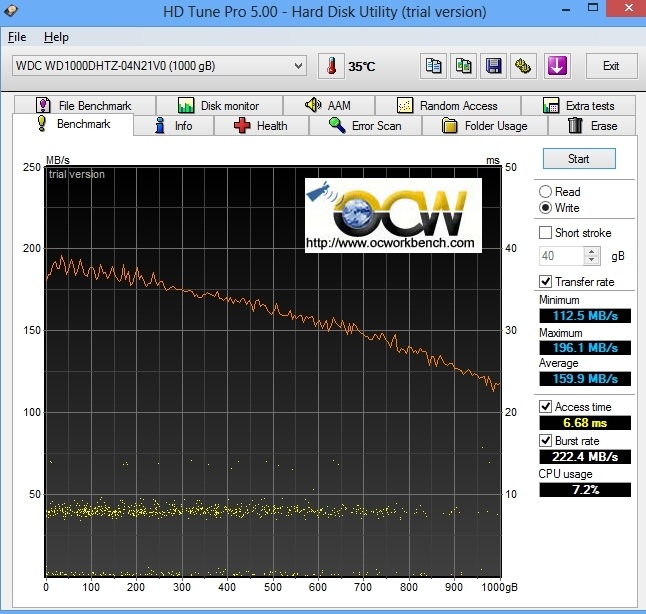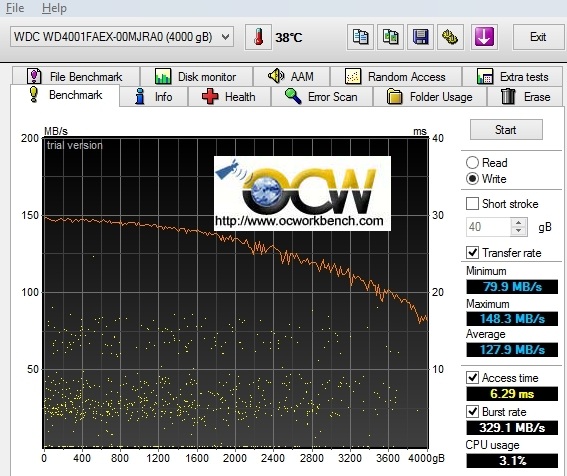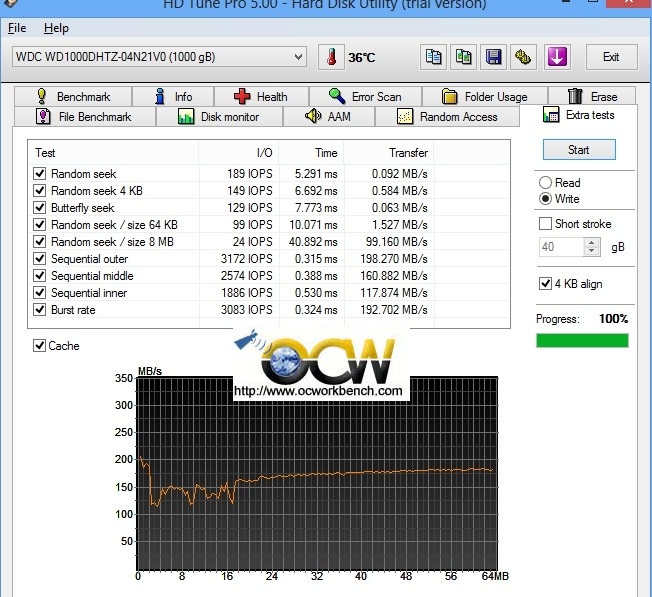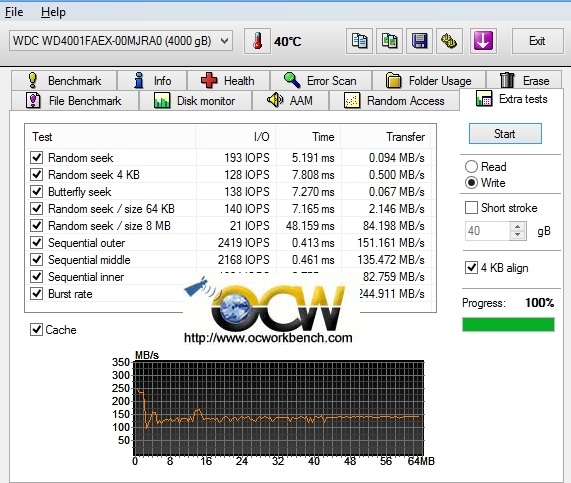HD Tune 5.0 Pro Write test
We used HD Tune 5.0 Pro to conduct the write tests on both Hard Drive. From the results, we can easily see that the 4TB is slower with a speed range of 79.9 MB/s to 148.3 MB/s averaging 127.9MB/s.
The 1TB VelociRaptor performs better with a write speed range of 112.5MB/s to 196.1MB/s.
The burst rate on the 4TB is higher at 329.1MB/s with CPU usage of 3.1%.The 1TB VelociRaptor has a Burst rate of 222.4MB/s and 7.2% CPU utilisation.
WD VelociRaptor 1TB

WD Black Series 4TB

Extra tests
Using the HD Tune Pro 5.0 Extra tests, we discovered that the Black series 4TB doesn’t seem to lag behind the VelociRaptor 1TB in performance. The WD VelociRaptor wins some and lose some. One thing we can confirm by looking at the graph is that the writing on the 4TB seems to be more consistent but at a lower speed of 140MB/s whereas the VelociRaptor is delivering around 175MB/s.


I recently upgraded my old poor PC with a 500G Western Digital WD5000AAKB drive (old PATA, 7200 RPM, 16MB cache) and it is quiet and fast, albeit secondhand drive. So looks like that for high capacity AND time reliability the classic HDDs are here to stay.
On the second hand, I did not managed to get my SSD working using PATA/SATA converter in another old lazy Dell PC (Dell OptiPlex GX110, 1GHz PIII, 512MB SDRAM, integrated Intel 810 graphic with 4MB own videoram). It works only in Windows, delaying the PC start by like 2-3min and refusing to boot from it.
So, SSD is not w/o a own set problems, and we did not need to get back to the reliability. The new SSD seems to be even less reliable (smaller size = less duration = useless to buy a expensive drive that die so soon…).
One of my friend who operates a datacentre
dare not even use SSD as they’re unreliable.
This is very poor for a technical article. While the premise that spinning hard drives give more capacity for your money is sound, the article is otherwise full of innacuracies and misunderstandings. For example, the comparison based on serial transfer rate is totally misguided. One of the biggest benefits of SSDs is their random access performance which completely decimates spinning disks and is why SSDs are just as appropriate for a desktop machine as a boot drive because the OS primarily does (a lot of) random reads and writes.
And starting the article with an anecdote about the author’s personal experience with a single SSD as evidence of a general problem. There are huge differences in quality between the brands and I can guess which brand they had since there’s one I wouldn’t touch with a barge pole. Clearly the author or burned by a bad SSD and that’s a good reason to steer clear of the cheaper brands unless you have a good backup solution…